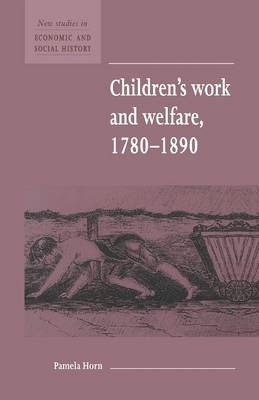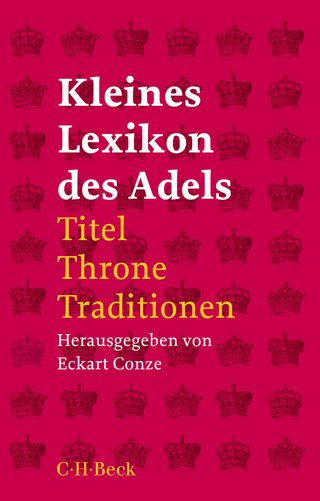
Children's Work and Welfare 1780–1890
Seiten
1995
Cambridge University Press (Verlag)
978-0-521-55769-6 (ISBN)
Cambridge University Press (Verlag)
978-0-521-55769-6 (ISBN)
A succinct account of changes in children's work and welfare between 1780 and 1890. It examines some of the debates which have attached themselves to those changes and discusses the role of the state and of philanthropic organisation in bringing about change.
This short book provides a succinct account of changes in children's work and welfare in Britain between 1780 and 1890. It examines both the scale and the nature of child employment and the changing attitude of society towards it at a time when Britain was becoming the 'workshop of the world'. The further development of industry in the second half of the nineteenth century meant that the need for juvenile workers declined. At the same time the efforts of philanthropists and the State led to legal curbs on the kinds of jobs children could perform and the minimum age at which they could commence them. The author concludes that the century after 1780 saw a progressive lengthening of childhood as a stage of life, and that by 1890 children had been recognised as 'special cases' in need of protective legislation. However, for the poorest and most disadvantaged families life remained a struggle, and children continued to pick up a living where they could.
This short book provides a succinct account of changes in children's work and welfare in Britain between 1780 and 1890. It examines both the scale and the nature of child employment and the changing attitude of society towards it at a time when Britain was becoming the 'workshop of the world'. The further development of industry in the second half of the nineteenth century meant that the need for juvenile workers declined. At the same time the efforts of philanthropists and the State led to legal curbs on the kinds of jobs children could perform and the minimum age at which they could commence them. The author concludes that the century after 1780 saw a progressive lengthening of childhood as a stage of life, and that by 1890 children had been recognised as 'special cases' in need of protective legislation. However, for the poorest and most disadvantaged families life remained a struggle, and children continued to pick up a living where they could.
Acknowledgements; 1. Introduction: 1780s–1850s; 2. The impact of industrialisation: 1780–1850s; 3. Rescue and reform: 1830–67; 4. Work and welfare: 1868–80s; Conclusion: the working-class child in the 1880s; Appendices; Select Bibliography; Index.
| Erscheint lt. Verlag | 28.9.1995 |
|---|---|
| Reihe/Serie | New Studies in Economic and Social History |
| Zusatzinfo | Worked examples or Exercises |
| Verlagsort | Cambridge |
| Sprache | englisch |
| Maße | 140 x 216 mm |
| Gewicht | 120 g |
| Themenwelt | Geschichte ► Teilgebiete der Geschichte ► Kulturgeschichte |
| Geschichte ► Teilgebiete der Geschichte ► Sozialgeschichte | |
| Wirtschaft ► Volkswirtschaftslehre ► Makroökonomie | |
| ISBN-10 | 0-521-55769-0 / 0521557690 |
| ISBN-13 | 978-0-521-55769-6 / 9780521557696 |
| Zustand | Neuware |
| Haben Sie eine Frage zum Produkt? |
Mehr entdecken
aus dem Bereich
aus dem Bereich
der stille Abschied vom bäuerlichen Leben in Deutschland
Buch | Hardcover (2023)
C.H.Beck (Verlag)
23,00 €
eine Geschichte der Welt in 99 Obsessionen
Buch | Hardcover (2023)
Klett-Cotta (Verlag)
22,00 €
Titel, Throne, Traditionen
Buch | Softcover (2023)
C.H.Beck (Verlag)
19,95 €


